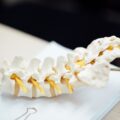Thiamine is one of the B vitamins and I need to explain its action. To put it as simply as possible, it regulates sugar metabolism in every cell within the body and has a special importance in the brain. About four years ago a researcher in England reported that there was a mild deficiency of thiamine (vitamin B1) in diabetic patients, a disease that affects sugar metabolism. He said that all diabetics should have a supplement of thiamine because he had anticipated that it will prevent complications in this devastating disease. If that is not enough to make a diabetic sit up and take notice I would be very surprised. I will try to explain this a little further.
A program on PBS television called “The Quiet Revolution” reported that there were 29 million patients in the United States with type two diabetes and as many as 70 million with pre-diabetes, meaning that they were on their way to contract the disease. If we had 29 million cases of “flu” it would be called a pandemic. Most people with type 2 diabetes have no idea that their health before the onset of the disease is within their own responsibility. Our culture says “go ahead, do what you like, eat what you like, drink what you like; if you get sick, it is just bad luck and you go to one of those clever characters called Dr. who will produce the magic bullet that “cures” you because of the wonders of modern scientific medicine.
Although both types one and two have different causative factors, I want to emphasize very strongly that both types are not purely genetically determined. The genetic risk in type 1 is much greater than in type 2 and is certainly the major component as the underlying cause. Type 2 is much more clearly initiated by dietary indiscretion in a person who might be, shall we say, at genetic risk. Much of our diet today involves the consumption of man-made foods developed by the food industry. Of course, the main drive of this industry is to sell their products and so it appeals to our palatability, a sensory phenomenon that has nothing to do with good nutrition. We all know what pleasure we get from tasting anything that is sweet. Since sweetness sells, it explains why so many man-made foods are laced with sugar, so long thought to be harmless and even good for you by supplying quick energy.
Sweet and Dangerous: Sugar and Thiamine Deficiency
In 1973, John Yudkin, a professor of nutrition in a large London Hospital wrote a book with the title “Sweet and Dangerous”, the result of his many years of research into the dangers of sugar. He reported that many diseases, including heart disease, were related to its ingestion. As so often happens, this terribly important book was ignored and cholesterol became the demon for the cause of heart disease. Now, 40 years later, many people know that the cholesterol story has been debunked. Because sugar requires vitamin B 1 to metabolize it, in much the same way as gasoline requires a spark plug to burn it, taking sugar on its own in the form of empty calories easily overwhelms the power of thiamine to carry out its function.
That means that you have an imbalance between the calories and the vitamin or a relative deficiency of thiamine. Your daily intake of thiamine may be sufficient for a good diet but not enough to take care of the overload of sugar represented as the bad diet which is so common. It may easily be accomplished by the consumption of the stuff that we consume in our social activities. Yes, there is no doubt that it makes the mouth water and the sweetness underlies the joy of the social event but if it is causing widespread disease, I ask you, is it worth it?
The lower part of the human brain is particularly sensitive to thiamine deficiency and because this part of the brain organizes the entire body in its performance of adapting to the environment in which we find ourselves, we easily become maladapted. For example, we may feel cold when it is hot or hot when it is cold, a mistake in sensory input and brain interpretation. The nervous system involved in this reaction is known as the autonomic nervous system and is entirely automatic. The message from the brain to the heart causes it to accelerate when it is a necessary adaptive need as, for example, running for a bus. But when this happens spontaneously for no apparent reason at all, we might take this to a physician and tell him that “I have palpitations of my heart”. Unfortunately the medical focus would be on the heart not on the nervous system that caused the acceleration. For this reason one of the complications in diabetes is called “autonomic neuropathy”, meaning that the autonomic nervous system is disorganized. Thiamine protects diabetics from complications because it improves the ability of our cells to produce adequate energy for function by “burning sugar as brain fuel”. Think of it as a change of inefficient spark plugs in a car engine.
Thiamine deficiency is sometimes referred to as pseudo (or false) hypoxia because it results in exactly the same symptoms as those from a mild to moderate deprivation of oxygen. Its effect on the lower part of the brain is to make it more reactive to all input signals. When you read a telegram giving you bad news, your eyes send a signal to the brain that has to interpret the meaning of the signal. I refer to the input signals, whether they are physical or mental, as “stress”. Your response to the stress is organized by the lower brain with “advice and consent” from the higher brain. Freud referred to the lower brain as the “id”. It reacts automatically to anything perceived as danger or self indulgence and the upper brain as the “ego” because it either permits or prevents the ensuing action. It is our moral censor.
I have studied the effects of this kind of “high calorie malnutrition” and it is responsible for a huge amount of mental illness and unpredictable bad behavior. It makes the “id” irritable and weakens the “ego” making a person much more likely to act in response to a whim or a nursed grievance. There is much evidence that it can even affect criminal behavior. This kind of malnutrition is widespread in America, but I have never seen it discussed in relation to whether the behavior exhibited at inexplicable school shootings is a potential factor. A recent exhibition of “road rage” projected on TV news might just be comprehensible because it was otherwise well beyond civilized behavior. Although this may sound too far-fetched, we have an epidemic of Attention Deficit Disorder, with or without hyperactivity, learning disability and obesity in our children that defies a genetically determined cause. Nature does not make that kind of mistake in so many individuals. Their young brains are irritable and disorganized because of dietary indulgence.
We Need Your Help
More people than ever are reading Hormones Matter, a testament to the need for independent voices in health and medicine. We are not funded and accept limited advertising. Unlike many health sites, we don’t force you to purchase a subscription. We believe health information should be open to all. If you read Hormones Matter, like it, please help support it. Contribute now.













